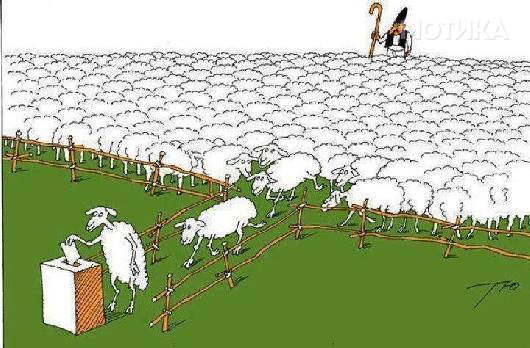Seems like both of the political parties claim this to be win-win agreement, but won't take long to see the outcome of this whole charade.
Przino Agreement
The Przino agreement or agreement from 2 june - 15 july is a political agreement between the main political parties in the Republic of Macedonia with the mediation of the European Union. The agreement ended the Macedonian political and institutional crisis in the first half of 2015. It foresees: the participation of the opposition party SDSM in the ministries; the early resignation of prime minister Nikola Gruevski in January and a caretaker government to bring the country to general elections in April 2016, as well as a Special prosecutor to lead the investigations about the eventual crimes highlighted by the wiretapping scandal.[1]
Background
Main article: 2015 Macedonian protests
In May 2015, protests occurred in Skopje, Republic of Macedonia, against the incumbent Prime Minister Nikola Gruevski and his government. Protests began following charges being brought up against Zoran Zaev, the opposition leader, who responded by alleging that Gruevski had 20,000 Macedonian officials and other figures wiretapped, and covered up the murder of a young man by a police officer in 2011. A major protest occurred on May 5, seeing violent clashes between activists and police, with injuries on both sides. In the days afterward, the opposition claimed that more anti-government actions will occur, which they did later that month. Several ministers, including the interior minister, resigned during the protests.[2]
Implementation
The implementation of the Przino Deal proved troublesome, with opposition SDSM party accusing majority VMRO of dragging feets. The nomination of Katica Janeva as Special Prosecutor was hailed as a breakthrough, but the appointment of her team (considered too close to the VMRO) raised eyebrows. On 14 October 2015, the SDSM leader Zoran Zaev announced that the deal "is no longer active", after failure by the Council of Public Prosecutors to appoint half of the candidates proposed by Janeva.[3] On 4 November the others candidates are elected and the team of Katica Janeva was completed.[4] On 4 November was achived deal about ministers and vice-ministers in transitional (tehnical) goverment. Next point of the agreement is resignation from current prime-minister Nikola Gruevski in december 2015 and afther that Assembly of Republic of Macedonia should elected new prime-minister and tehnical govermen whose will lead Republic to the early general elections in April 2016.
izvor: https://en.wikipedia.org/wiki/Przino_Agreement
Przino Agreement
The Przino agreement or agreement from 2 june - 15 july is a political agreement between the main political parties in the Republic of Macedonia with the mediation of the European Union. The agreement ended the Macedonian political and institutional crisis in the first half of 2015. It foresees: the participation of the opposition party SDSM in the ministries; the early resignation of prime minister Nikola Gruevski in January and a caretaker government to bring the country to general elections in April 2016, as well as a Special prosecutor to lead the investigations about the eventual crimes highlighted by the wiretapping scandal.[1]
Background
Main article: 2015 Macedonian protests
In May 2015, protests occurred in Skopje, Republic of Macedonia, against the incumbent Prime Minister Nikola Gruevski and his government. Protests began following charges being brought up against Zoran Zaev, the opposition leader, who responded by alleging that Gruevski had 20,000 Macedonian officials and other figures wiretapped, and covered up the murder of a young man by a police officer in 2011. A major protest occurred on May 5, seeing violent clashes between activists and police, with injuries on both sides. In the days afterward, the opposition claimed that more anti-government actions will occur, which they did later that month. Several ministers, including the interior minister, resigned during the protests.[2]
Implementation
The implementation of the Przino Deal proved troublesome, with opposition SDSM party accusing majority VMRO of dragging feets. The nomination of Katica Janeva as Special Prosecutor was hailed as a breakthrough, but the appointment of her team (considered too close to the VMRO) raised eyebrows. On 14 October 2015, the SDSM leader Zoran Zaev announced that the deal "is no longer active", after failure by the Council of Public Prosecutors to appoint half of the candidates proposed by Janeva.[3] On 4 November the others candidates are elected and the team of Katica Janeva was completed.[4] On 4 November was achived deal about ministers and vice-ministers in transitional (tehnical) goverment. Next point of the agreement is resignation from current prime-minister Nikola Gruevski in december 2015 and afther that Assembly of Republic of Macedonia should elected new prime-minister and tehnical govermen whose will lead Republic to the early general elections in April 2016.
izvor: https://en.wikipedia.org/wiki/Przino_Agreement


Comment